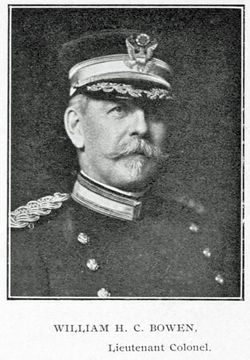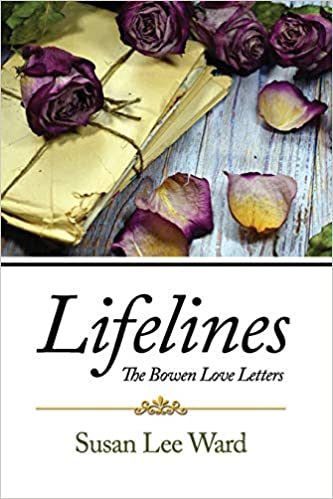My childhood name was Willie Bowen and I was born “into the army” at Old Fort Union, New Mexico Territory, on January 7, 1852. I had the distinction of being the first child born at the new fort, which was still under construction. My parents, Captain Isaac Bowen and Catherine “Katie” Cary Bowen, had just moved out of their three tents and into one of the crude pine houses built for officers and their families. We lived at Fort Union between 1851 and 1853.
Before we returned to “the states” back across the Santa Fe Trail in 1855, we also lived in military quarters in Albuquerque (where my sister Agnes was born in 1854) and also in Santa Fe, near the plaza. According to my mother’s letters, I spoke Spanish almost as well as English. Next, we lived in New Orleans in a boarding house near St. Charles Avenue, and I remember watching parades from our balcony. My brother Millard Fillmore Bowen was born there in 1856.
I remember visiting my grandparents, aunts, uncles, and cousins in Maine and New York during the summers to escape the heat and scourge of mosquitoes in New Orleans. In her weekly letters, Mother sent our kisses to Papa, who could not get leave and had to stay in New Orleans. After my brother Robert Bowen was born there in 1858, we spent the summer in a cottage in Pass Christian, Mississippi, a nearby resort town, which was considered perfectly free from epidemics. We bathed in the salt marshes at high tide; caught sea crabs; ate berries, melons, and gumbo; and I remember my mother sitting on the veranda with her sewing, chatting with a neighbor while watching us play in the yard.
After my parents and baby Robert died suddenly, Uncle Dennis Bowen and his wife, Mary Eliza Bowen, came to take us back east to live with them in Buffalo, New York, where I went to school with my cousin, Eddie Bowen. Our servant, Margy, came to New York with us too. When we were older, Agnes, Fillmore, and I were taken to Houlton, Maine, for the summers. Grandmother Cary retold her bear stories, along with our mother’s stories about fires and thunderstorms on the prairie, rattlesnakes, prairie dog towns, brave pigs, wolves, the grumbling of buffaloes, and painted Indians. As a dutiful daughter living far away, my mother had shared all of her experiences traveling three months by wagon train on the old Santa Fe Trail and living in New Mexico when it was still a territory. Her frequent correspondence was a lifeline to home.
As a young man in search of a vocation, I left Buffalo at age eighteen and lived in Houlton for a few years, clerking in a store and reading for the law like my brother Fillmore. I didn’t much like it. Encouraged by my grandmother Cary before she died, I found hundreds of family letters written between 1846 and 1858 that had been saved, tied up in bundles, and stored in the old Cary House. In 1874, I struck out to see the world, but promised myself that I would read the letters sometime. They were a direct link to my parents and early childhood.
After being commissioned as a second lieutenant by President Grant (as a favor to my father, whom he remembered from the Mexican War), I had my own military career during the Indian Wars and in the Philippines, and retired at age sixty-two. During my various military postings, I retrieved the letters from Houlton, and my daughter, Gwladys Bowen, began typing them up for future generations. I’m eighty now and my hope is that the intimate letters written by my parents will be shared with any and all who might be interested in the daily lives, personal opinions, and eyewitness accounts of an Old Army officer and his wife during the Mexican War, our country’s westward expansion, and settling of the New Mexico Territory.
As revealed by their letters, Katie and Isaac Bowen’s story is about joy, hope, longing, determination, endurance, faith in Divine Providence,, the the trials and tribulations of military life, overcoming cultural prejudices, and above all, a deep and abiding love for each other and their family members.
Respectfully,
Col. William Holman Cary Bowen
January 1932


